#Indianapolis Endodontics PC
Text
Indianapolis Endodontics, PC: Offering Office-Based Anesthesia for a Comfortable and Relaxing Experience
Indianapolis Endodontics, PC is a leading provider of endodontic care, including root canals and other specialized procedures. The practice is committed to providing patients with the highest quality care in a comfortable and relaxing environment.
One of the ways that Indianapolis Endodontics, PC achieves this is by offering office-based anesthesia. Office-based anesthesia is a safe and effective way to provide patients with deep sedation or general anesthesia during their endodontic procedure. This can be especially beneficial for patients who have severe dental anxiety or medical conditions that require special attention.

There are a number of advantages to having office-based anesthesia for endodontic treatment. First, it allows patients to remain in the comfort of their dentist's office, rather than having to go to a hospital or surgery center. Second, office-based anesthesia is typically less expensive than hospital-based anesthesia. Third, office-based anesthesia allows patients to recover more quickly, so they can return to their normal activities sooner.
Indianapolis Endodontics, PC has a team of experienced and qualified anesthesiologists who provide office-based anesthesia services to patients. The practice also has state-of-the-art monitoring equipment to ensure the safety of patients during their procedure.
If you are considering endodontic treatment, Indianapolis Endodontics, PC encourages you to ask about office-based anesthesia. It may be the best option for you to have a comfortable and relaxing experience.
Here are some of the benefits of having office-based anesthesia for endodontic treatment at Indianapolis Endodontics, PC:
Comfort and convenience: You will remain in the comfort of your dentist's office and be able to return home the same day.
Affordability: Office-based anesthesia is typically less expensive than hospital-based anesthesia.
Quicker recovery time: You will be able to recover more quickly from office-based anesthesia and return to your normal activities sooner.
To learn more about office-based anesthesia and whether it is right for you, please contact Indianapolis Endodontics, PC today.
0 notes
Text
Discover unparalleled expertise in root canal therapy at Indianapolis Endodontics.
Welcome to Indianapolis Endodontics, your premier destination for specialized endodontic care. Our expert team is dedicated to ensuring your dental health through cutting-edge services, including precise root canals and meticulous root canal retreatment. As the go-to Indianapolis Root Canal Specialist, we combine advanced techniques with compassionate care, striving to make your experience comfortable and stress-free. Trust us to prioritize your oral well-being, offering tailored solutions for a healthier, pain-free smile. Discover excellence in endodontics at Indianapolis Endodontics.
Name: Indianapolis Endodontics PC
Address: 6335 Intech Commons Dr. Suite J Indianapolis, IN 46278
Phone: 317-924-3228
Website: https://www.indyendo.com
1 note
·
View note
Text
Dental Videos for Indianapolis Endodontics PC
Indianapolis Endodontics PC is dedicated to providing the best possible care and service to their patients. As part of this commitment, they offer a variety of educational resources on their website, including dental videos. These videos cover a wide range of topics related to endodontics, from the basics of root canal therapy to more complex procedures such as endodontic surgery.
The dental videos on the Indianapolis Endodontics PC website are designed to be informative and helpful for both patients and professionals. For patients, the videos can provide a better understanding of what to expect during different endodontic procedures. This can help to reduce anxiety and make the experience more comfortable. For professionals, the videos can be a valuable resource for continuing education and staying up-to-date on the latest endodontic techniques.
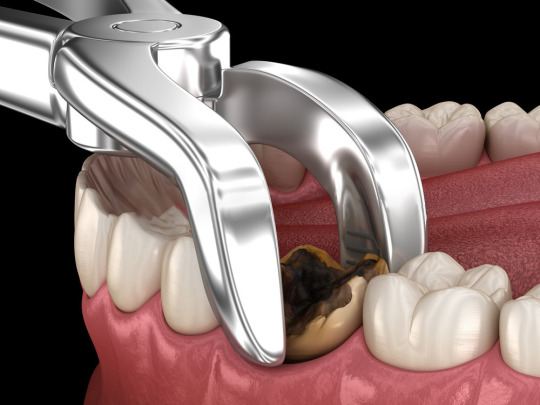
Here are some of the dental videos that are available on the Indianapolis Endodontics PC website:
What is a Root Canal? This video provides a basic overview of root canal therapy, including what it is, why it is necessary, and how it is performed.
The GentleWave Procedure This video explains the GentleWave Procedure, which is a new and innovative way to perform root canal therapy. The GentleWave Procedure uses sound waves to clean and disinfect the root canals, which can make the procedure more comfortable and efficient.
Cracked Tooth Repair This video discusses cracked tooth repair, a procedure that can be used to save a tooth that has cracked or fractured.
Endodontic Surgery This video explains endodontic surgery, a procedure that is sometimes necessary to treat a tooth that cannot be saved with root canal therapy.
In addition to these general videos, Indianapolis Endodontics PC also offers videos on a variety of other endodontic topics, such as dental implants, apicoectomies, and bone grafting. The website also has a section for dental professionals, which includes videos on clinical topics such as endodontic microsurgery and regenerative endodontics.
Whether you are a patient or a professional, the dental videos on the Indianapolis Endodontics PC website are a valuable resource for information and education.
0 notes
Text
Dental Anxiety and Fear: What You Need to Know
Dental anxiety and fear are common conditions that affect millions of people around the world. In fact, up to 20% of people avoid dental care altogether due to their fear of the dentist. If you have dental anxiety or fear, you're not alone. There are many things you can do to manage your anxiety and make dental visits more comfortable.
What is dental anxiety and fear?
Dental anxiety and fear are feelings of nervousness, worry, or apprehension about dental appointments or procedures. These feelings can range from mild to severe, and they can make it difficult or impossible to seek dental care.
What causes dental anxiety and fear?
There are many possible causes of dental anxiety and fear. Some common causes include:
Past negative experiences with dentists or dental procedures
Fear of pain or discomfort
Fear of needles or injections
Embarrassment about the appearance of one's teeth
Feeling of loss of control
Claustrophobia (fear of enclosed spaces)
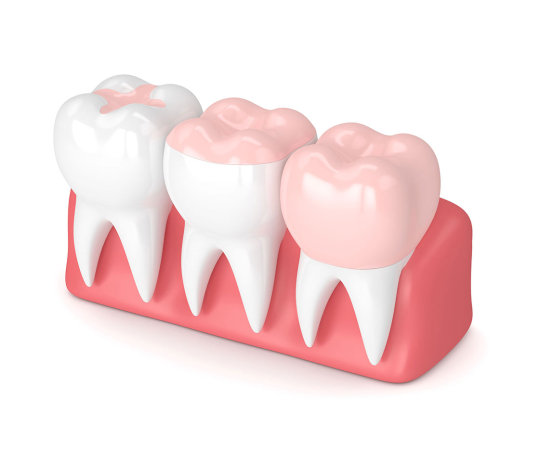
How to manage dental anxiety and fear
There are many things you can do to manage your dental anxiety and fear. Here are a few tips:
Talk to your dentist. Let your dentist know that you have dental anxiety or fear. They can work with you to develop a plan to make your visits more comfortable.
Choose a dentist you trust. It's important to find a dentist who you feel comfortable with and who understands your fears.
Take breaks during your appointment. If you start to feel anxious, let your dentist know. They can take a break so you can relax.
Use relaxation techniques. There are many relaxation techniques that can help to reduce anxiety, such as deep breathing, meditation, and visualization.
Consider sedation dentistry. If your dental anxiety is severe, you may want to consider sedation dentistry. Sedation dentistry involves using medication to help you relax and feel more comfortable during your dental appointment.
Indianapolis Endodontics PC
At Indianapolis Endodontics PC, we understand that dental anxiety and fear are real problems. We are committed to providing our patients with a comfortable and relaxing dental experience. We offer a variety of sedation options to help our patients manage their anxiety and fear.
If you have dental anxiety or fear, we encourage you to contact Indianapolis Endodontics PC today. We can help you develop a plan to make your dental visits more comfortable and less stressful.
Don't let your fear of the dentist prevent you from getting the dental care you need. Contact Indianapolis Endodontics PC today to learn more about our sedation options and how we can help you manage your dental anxiety and fear.
0 notes
Text
Platelet Rich Plasma: A New Frontier in Endodontics
Indianapolis Endodontics PC is pleased to offer Platelet Rich Plasma (PRP) therapy to our patients. PRP is a cutting-edge treatment that can be used to enhance healing and promote tissue regeneration after a variety of endodontic procedures, including root canals, apicoectomies, and bone grafting.
PRP is a concentrated preparation of platelets, which are blood cells that contain growth factors and other important healing proteins. When PRP is applied to a wound site, it can help to:
Reduce inflammation
Promote new cell growth
Accelerate healing
Reduce the risk of infection
PRP therapy has been shown to be effective in a variety of medical and surgical settings, including dentistry. In endodontics, PRP can be used to:
Improve the success rate of root canals
Reduce the need for retreatment
Promote healing after apicoectomy surgery
Stimulate bone growth after bone grafting
PRP therapy is a safe and effective treatment that can be used to enhance the outcome of a variety of endodontic procedures. If you are considering PRP therapy, please talk to your doctor at Indianapolis Endodontics PC to learn more.
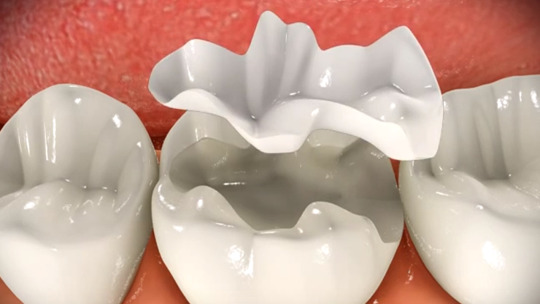
Benefits of PRP Therapy for Endodontic Patients
Faster healing time
Reduced risk of infection
Improved success rate of root canals
Reduced need for retreatment
Stimulated bone growth after bone grafting
How Does PRP Therapy Work?
PRP therapy is a relatively simple procedure. First, a small sample of your blood is drawn. The blood is then placed in a centrifuge to separate the platelets from the red blood cells. The platelets are then concentrated and applied to the wound site.
PRP therapy can be used in conjunction with other endodontic procedures, such as root canals, apicoectomies, and bone grafting. It can also be used as a standalone treatment to promote healing and tissue regeneration.
If you are interested in learning more about PRP therapy, please contact Indianapolis Endodontics PC today.
0 notes
Text
Oral Pathology at Indianapolis Endodontics PC
Oral pathology is the study of diseases and disorders of the mouth and jaw. It encompasses a wide range of conditions, including infections, tumors, cysts, and developmental abnormalities. Oral pathologists are trained to diagnose and treat these conditions, and to provide guidance to other dentists and healthcare professionals on their management.

At Indianapolis Endodontics PC, we offer a full range of oral pathology services, including:
Oral cancer screenings
Biopsy and diagnosis of oral lesions
Treatment of oral infections and inflammatory diseases
Management of oral tumors and cysts
Consultation on other oral health conditions
Our oral pathologists are highly experienced and qualified, and they work closely with our endodontists to provide patients with the best possible care.
Why is oral pathology important?
Oral pathology is important because it can help to identify and treat diseases and disorders of the mouth and jaw early on, when they are most treatable. Oral cancer, for example, is a serious disease, but it is highly curable if it is detected and treated early. Oral pathologists also play an important role in managing other oral health conditions, such as infections, inflammatory diseases, and tumors.
When should I see an oral pathologist?
You should see an oral pathologist if you have any of the following concerns:
A sore or lesion in your mouth or throat that does not heal within two weeks
A change in the color or texture of the soft tissues of your mouth
A lump in your neck or face
Difficulty chewing, swallowing, or speaking
Bleeding gums
Loose teeth
If you have any of these concerns, please schedule an appointment with Indianapolis Endodontics PC. Our oral pathologists will be happy to evaluate your condition and recommend the best course of treatment.
0 notes
Text
Bone Grafting at Indianapolis Endodontics PC
Bone grafting is a surgical procedure that adds bone to the jawbone. It is often used to prepare the jaw for dental implants, which are artificial teeth that are surgically implanted into the jawbone. Bone grafting can also be used to treat other conditions, such as gum disease, tooth extraction, and jaw injuries.
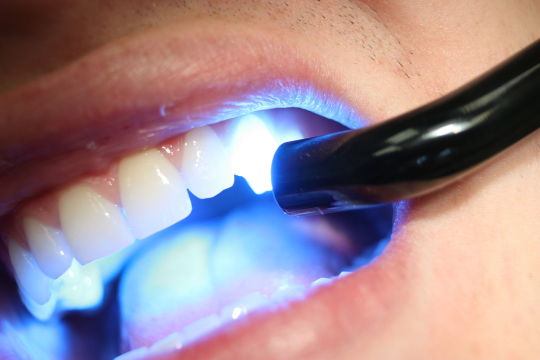
At Indianapolis Endodontics PC, we offer a variety of bone grafting procedures, including:
Ridge augmentation: This procedure is used to add bone to the jawbone ridge, which is the bony area that supports the teeth. Ridge augmentation can be used to prepare the jaw for dental implants or to improve the appearance of the smile.
Socket preservation: This procedure is used to preserve bone after a tooth extraction. Socket preservation helps to prevent the jawbone from shrinking, which can make it more difficult to place dental implants in the future.
Sinus lift: This procedure is used to add bone to the upper jawbone, beneath the sinus cavities. Sinus lifts are often necessary before dental implants can be placed in the upper jaw.
Bone grafting procedures are typically performed under local anesthesia. During the procedure, the dentist will make a small incision in the gums and expose the jawbone. Bone grafting material is then placed at the site of the incision and covered with a membrane. The membrane helps to protect the bone grafting material and promote healing.
The bone grafting procedure itself takes about an hour to complete. However, it can take several months for the new bone to fully fuse with the existing bone. Once the bone has healed, the dentist can then place dental implants or perform other dental procedures.
If you are considering bone grafting, please schedule a consultation with one of our experienced endodontists. We will be happy to discuss your individual needs and recommend the best course of treatment for you.
Benefits of Bone Grafting at Indianapolis Endodontics PC
Experienced endodontists who are experts in bone grafting procedures
State-of-the-art facility with the latest equipment and technology
Comfortable and compassionate care
Convenient location in Indianapolis, Indiana
Contact Indianapolis Endodontics PC today to learn more about bone grafting and to schedule a consultation.
0 notes
Text
Apicoectomy: A Surgical Procedure to Save Your Tooth
Apicoectomy is a surgical procedure that is performed to remove the infected root tip of a tooth. It is typically performed when root canal therapy has failed to eliminate an infection. An apicoectomy can also be performed to treat a tooth that has a fractured root or a cyst at the root tip.
Indianapolis Endodontics PC is a team of experienced endodontists who specialize in apicoectomies and other endodontic procedures. They use the latest technology and techniques to provide their patients with the best possible care.
Why is an apicoectomy necessary?
An apicoectomy may be necessary if:
Root canal therapy has failed to eliminate an infection.
The tooth has a fractured root.
The tooth has a cyst at the root tip.
The tooth is causing pain or inflammation.
The tooth is interfering with a dental implant or other dental procedure.

What happens during an apicoectomy?
During an apicoectomy, the endodontist will:
Make an incision in the gum tissue to expose the bone and the root tip of the tooth.
Remove the infected root tip and any surrounding inflamed tissue.
Place a root-end filling to seal the root and prevent further infection.
Suture the gum tissue closed.
What is the recovery time from an apicoectomy?
Most patients experience some discomfort and swelling after an apicoectomy. However, this discomfort is usually mild and can be managed with over-the-counter pain medication. The swelling typically subsides within a few days.
Most patients are able to return to work or school the day after surgery. However, it is important to avoid strenuous activity for a few days.
What are the benefits of an apicoectomy?
An apicoectomy can help to:
Eliminate an infection.
Save a tooth from extraction.
Relieve pain and inflammation.
Preserve the function of the tooth.
Prevent further damage to the bone and surrounding teeth.
If you think you may need an apicoectomy, contact Indianapolis Endodontics PC today. They will be happy to answer your questions and schedule a consultation.
0 notes
Text
Antibiotic Treatment for Indianapolis Endodontics PC
Antibiotic treatment is sometimes prescribed by endodontists to help treat or prevent infection in the teeth and gums. Antibiotics can be taken orally, applied topically, or placed directly into the tooth or gum tissue.

Types of antibiotics used in endodontics
The most common types of antibiotics used in endodontics include:
Penicillins: Penicillins are a broad-spectrum antibiotic that is effective against a wide range of bacteria. They are often used to treat infections of the teeth and gums, such as abscesses and periodontitis.
Cephalosporins: Cephalosporins are another type of broad-spectrum antibiotic that is similar to penicillins. They are often used to treat infections that are resistant to penicillins.
Metronidazole: Metronidazole is an antibiotic that is specifically effective against anaerobic bacteria, which are bacteria that do not require oxygen to survive. It is often used to treat infections of the gums and teeth, such as periodontitis and abscesses.
Clindamycin: Clindamycin is an antibiotic that is effective against a wide range of bacteria, including both aerobic and anaerobic bacteria. It is often used to treat infections of the teeth and gums, as well as other infections of the head and neck.
When is antibiotic treatment prescribed?
Antibiotic treatment may be prescribed by an endodontist for a variety of reasons, including:
To prevent infection before a dental procedure, such as a root canal or endodontic surgery
To treat an existing infection of the teeth and gums
To prevent the spread of infection from the teeth and gums to other parts of the body
How to take antibiotics
It is important to take antibiotics as prescribed by your endodontist. This means taking the correct dosage at the correct times and for the full course of treatment. Do not stop taking antibiotics early, even if you start to feel better, as this can allow the infection to come back.
If you have any questions or concerns about antibiotic treatment, be sure to talk to your endodontist.
Indianapolis Endodontics PC
Indianapolis Endodontics PC is a team of experienced and skilled endodontists who are dedicated to providing their patients with the highest quality of care. They offer a wide range of endodontic services, including root canal therapy, endodontic surgery, and antibiotic treatment.
If you are in need of antibiotic treatment for a dental infection, Indianapolis Endodontics PC is here to help. Contact them today to schedule an appointment.
0 notes
Text
Limited Oral Surgery at Indianapolis Endodontics PC
Indianapolis Endodontics PC is a team of highly skilled and experienced professionals who are dedicated to providing their patients with the best possible care. In addition to their expertise in endodontics, they also offer a variety of limited oral surgery procedures.
Limited oral surgery refers to a range of procedures that can be performed by dentists and endodontists who have received additional training. These procedures are less complex than those performed by oral and maxillofacial surgeons, but they can still be very effective in treating a variety of dental conditions.
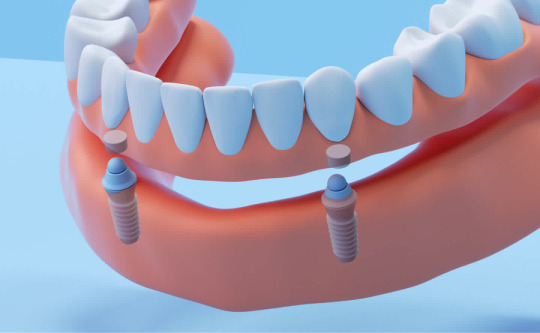
Some of the limited oral surgery procedures that are offered at Indianapolis Endodontics PC include:
Apicoectomy: This procedure is used to remove the tip of the root of a tooth, along with any infected tissue. It is often performed when a root canal therapy has not been successful in relieving pain or infection.
Bone grafting: This procedure is used to add bone to the jaw in areas where it has been lost due to injury, disease, or tooth extraction. Bone grafting can be used to prepare the jaw for dental implants or other restorative procedures.
Oral pathology: This is the diagnosis and treatment of diseases and conditions that affect the mouth and jaw. Indianapolis Endodontics PC is equipped to perform a variety of oral pathology procedures, including biopsies and lesion removal.
Platelet-rich plasma (PRP) therapy: This is a relatively new treatment that uses the patient's own blood platelets to promote healing. PRP therapy can be used to treat a variety of dental conditions, including gum disease, tooth extractions, and jawbone defects.
If you are in need of limited oral surgery, Indianapolis Endodontics PC is a great option. Their team of experienced professionals is committed to providing their patients with the highest quality care and the best possible outcomes.
To learn more about limited oral surgery or to schedule a consultation, please contact Indianapolis Endodontics PC today.
0 notes
Text
Root Canal Retreatment at Indianapolis Endodontics PC
What is root canal retreatment?
Root canal retreatment is a procedure that is performed when the initial root canal therapy does not succeed or fails over time. This can happen for a number of reasons, such as:
Infection: If the tooth becomes reinfected after the initial root canal therapy, retreatment may be necessary to remove the infection and save the tooth.
Incomplete treatment: If the root canals were not completely cleaned and sealed during the initial root canal therapy, bacteria can remain and cause the tooth to become infected again.
Cracked tooth: A cracked tooth can allow bacteria to enter the root canals and cause infection, even if the tooth has already had root canal therapy.
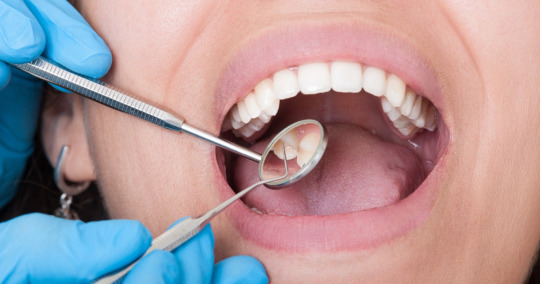
What to expect during root canal retreatment
Root canal retreatment is very similar to the initial root canal therapy procedure. The dentist will first remove any existing crown or filling from the tooth. Then, they will use a rubber dam to isolate the tooth from the rest of the mouth. Next, the dentist will make an opening in the top of the tooth and remove the old root canal filling material.
Once the root canals are clear, the dentist will use special instruments to clean and disinfect them. Then, they will fill the root canals with a new material and seal the opening in the tooth. Finally, the dentist will place a temporary filling over the tooth.
Recovery from root canal retreatment
Most people experience little to no discomfort after root canal retreatment. However, some people may experience some mild pain or sensitivity for a few days after the procedure. Over-the-counter pain relievers, such as ibuprofen or acetaminophen, can usually be used to relieve any discomfort.
After root canal retreatment, it is important to follow the dentist's instructions carefully to ensure that the tooth heals properly. This may include avoiding chewing on the tooth for a few days and taking antibiotics to prevent infection.
Why choose Indianapolis Endodontics PC for root canal retreatment?
Indianapolis Endodontics PC is a team of experienced and skilled endodontists who are dedicated to providing the highest quality of care for their patients. They use the latest technology and techniques to perform root canal retreatment and other endodontic procedures.
If you are considering root canal retreatment, Indianapolis Endodontics PC is a great option. Their team of experts will work with you to develop a treatment plan that is tailored to your individual needs. They will also provide you with all the information you need to make an informed decision about your care.
0 notes
Text
Root Amputation at Indianapolis Endodontics PC
Root amputation is a specialized dental procedure that involves removing one or more roots from a multi-rooted tooth. It is typically performed as a last resort to save a tooth that has become infected or damaged beyond repair.
At Indianapolis Endodontics PC, our experienced endodontists are highly skilled in performing root amputation procedures. We use state-of-the-art technology and techniques to ensure that your procedure is as comfortable and successful as possible.
Why might I need a root amputation?
There are a number of reasons why you might need a root amputation, including:
Severe infection: If an infection in a tooth root cannot be treated with a root canal, root amputation may be necessary.
Vertical root fracture: A vertical root fracture is a crack in the tooth root that extends all the way to the gum line. This type of fracture can make it difficult to save the tooth, but root amputation may be an option.
Resorption: Resorption is a process where the tooth root is slowly broken down by the body. This can happen for a variety of reasons, including trauma or infection. If resorption is severe, root amputation may be necessary to save the tooth.
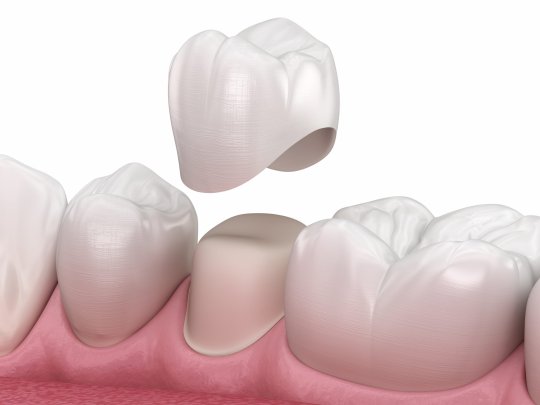
What to expect during a root amputation procedure
A root amputation procedure is typically performed under local anesthesia. However, in some cases, general anesthesia may be necessary.
To begin the procedure, the endodontist will make a small incision in the gum tissue to expose the tooth root. The root will then be sectioned off from the rest of the tooth and removed. The remaining tooth roots will be cleaned and sealed, and the incision will be closed with sutures.
Once the procedure is complete, you may experience some discomfort and swelling. This is usually normal and should subside within a few days. You will need to take antibiotics to prevent infection, and you may also need to wear a temporary crown or filling to protect the tooth.
Benefits of root amputation
Root amputation can offer a number of benefits, including:
Preserving the natural tooth: Root amputation can save a tooth that would otherwise need to be extracted.
Avoiding the need for dental implants: Dental implants can be expensive and time-consuming to place. Root amputation can be a more affordable and less invasive option.
Maintaining a healthy smile: A full and healthy smile is important for both your physical and emotional well-being. Root amputation can help you to keep your smile looking and feeling its best.
Contact Indianapolis Endodontics PC today
If you think you may need a root amputation, please contact Indianapolis Endodontics PC today. We offer a free consultation to discuss your individual needs and options.
0 notes
Text
Cracked Tooth: Diagnosis, Treatment, and Prevention
By Indianapolis Endodontics PC
A cracked tooth is a common dental problem that can affect people of all ages. It occurs when a tooth develops a crack or fracture in its enamel or dentin. Cracked teeth can be caused by a variety of factors, including:
Chewing on hard foods or objects: This can put excessive stress on the teeth and cause them to crack.
Trauma to the mouth: A blow to the mouth, such as from a fall or accident, can also cause a tooth to crack.
Teeth grinding (bruxism): Teeth grinding can put a lot of wear and tear on the teeth, making them more likely to crack.
Age: As people age, their teeth become more brittle and susceptible to cracking.
Symptoms of a cracked tooth
The symptoms of a cracked tooth can vary depending on the severity of the crack. Some people may not experience any symptoms at all, while others may experience severe pain, especially when chewing or biting down. Other common symptoms of a cracked tooth include:
Sensitivity to hot and cold foods and drinks
Pain when chewing
Pain when biting down on a hard object
A loose tooth
A visible crack in the tooth
Diagnosis and treatment of a cracked tooth
A dentist can diagnose a cracked tooth by performing a visual examination and taking X-rays of the tooth. The type of treatment that is recommended will depend on the severity of the crack and the location of the crack.
If the crack is small and does not affect the pulp of the tooth (the soft tissue inside the tooth that contains the nerves and blood vessels), the dentist may simply monitor the crack. In some cases, a filling or crown may be placed to protect the tooth and prevent the crack from worsening.

If the crack is more severe or affects the pulp of the tooth, root canal therapy may be necessary. Root canal therapy involves removing the pulp of the tooth and filling the tooth with a rubber-like material called gutta-percha. A crown will then be placed on the tooth to protect it and restore its function.
In some cases, a cracked tooth may be too badly damaged to be saved and will need to be extracted.
Prevention of cracked teeth
There are a few things you can do to help prevent cracked teeth:
Avoid chewing on hard foods or objects.
Wear a mouthguard if you grind your teeth.
See your dentist regularly for checkups and cleanings.
Get treatment for any dental problems as soon as possible.
If you think you may have a cracked tooth, it is important to see a dentist right away. Early diagnosis and treatment can help to save the tooth and prevent further damage.
Indianapolis Endodontics PC is a leading provider of endodontic services in Indianapolis, Indiana. Our team of experienced and skilled endodontists is dedicated to providing our patients with the highest quality of care. We offer a variety of treatments for cracked teeth, including root canal therapy and extraction.
If you have any questions or concerns about cracked teeth, please contact Indianapolis Endodontics PC today. We are here to help you keep your teeth healthy and strong for a lifetime.
0 notes
Text
Root Canal Therapy at Indianapolis Endodontics PC: A Safe and Effective Way to Save Your Tooth
Root canal therapy is a dental procedure that removes the infected or damaged pulp from the inside of a tooth. The pulp is the soft tissue that contains the nerves and blood vessels of the tooth. When the pulp is infected or damaged, it can cause pain, swelling, and sensitivity. Root canal therapy can help to relieve these symptoms and save the tooth from extraction.
Why is root canal therapy necessary?
Root canal therapy is necessary when the pulp of a tooth is infected or damaged. This can happen for a number of reasons, including:
Deep decay: When a cavity is not treated early on, it can spread to the pulp of the tooth.
A cracked or chipped tooth: A crack or chip in a tooth can allow bacteria to enter the pulp and cause an infection.
Repeated dental procedures: Repeated dental procedures on a tooth can weaken the pulp and make it more susceptible to infection.
Injury: An injury to a tooth can damage the pulp and lead to infection.
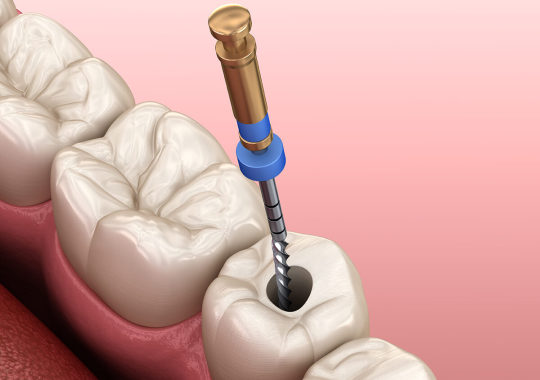
What happens during a root canal?
A root canal procedure typically takes one to three appointments to complete. During the first appointment, the endodontist will administer a local anesthetic to numb the area around the tooth. Then, a rubber dam will be placed around the tooth to isolate it from the rest of the mouth. Next, the endodontist will make a small opening in the top of the tooth and remove the infected or damaged pulp. The canals of the tooth will then be cleaned and shaped. Finally, the canals will be filled with a special material and the tooth will be sealed.
What are the benefits of root canal therapy?
Root canal therapy has a number of benefits, including:
It can help to relieve pain and swelling caused by an infected or damaged tooth.
It can save a tooth from extraction.
It can prevent the spread of infection to other teeth.
It can restore a tooth to its full function.
Indianapolis Endodontics PC: Your Trusted Partner for Root Canal Therapy
If you are facing the possibility of root canal therapy, Indianapolis Endodontics PC is here to help. Our experienced endodontists are experts in root canal therapy and will work with you to ensure that your procedure is as comfortable and successful as possible.
We offer a variety of root canal therapy options, including the GentleWave procedure, which is a less invasive and more comfortable way to have a root canal. We also offer office-based anesthesia for patients who are anxious or have dental phobias.
0 notes
Text
Indianapolis Endodontics PC: Excellence in Endodontics
Indianapolis Endodontics PC is a specialized dental practice that provides root canal therapy and other endodontic services to patients in the Indianapolis area. Endodontics is the branch of dentistry that deals with the inside of the tooth, including the pulp, nerves, and blood vessels. Endodontists are dentists who have received additional training in endodontics, and they are experts in diagnosing and treating problems with the inside of the tooth.
Root canal therapy is a common procedure that is used to save a tooth that is infected or damaged. During root canal therapy, the endodontist will remove the infected or damaged pulp from the inside of the tooth and then clean and seal the tooth. This procedure can relieve pain and inflammation and prevent the tooth from becoming further damaged or lost.
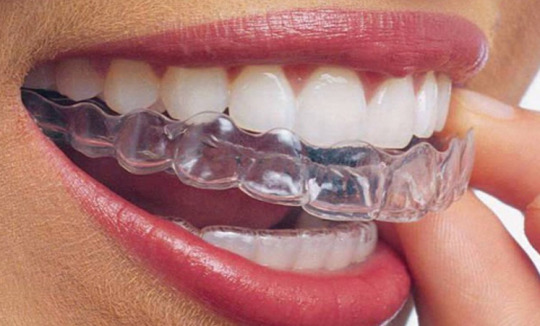
In addition to root canal therapy, Indianapolis Endodontics PC also offers a variety of other endodontic services, including:
Endodontic surgery: This type of surgery is used to treat complex problems with the inside of the tooth, such as a cracked tooth or a root infection that has not responded to other treatments.
Retreatment: This procedure is performed on teeth that have had a root canal in the past but have become infected again.
Traumatic dental injuries: Endodontists can also treat injuries to the teeth, such as a tooth that has been knocked out or chipped.
Indianapolis Endodontics PC is committed to providing patients with the highest quality endodontic care. The practice uses the latest technology and equipment, and the endodontists are experienced and skilled in all aspects of endodontics.
If you are experiencing pain or discomfort in your teeth, or if you have any concerns about the inside of your teeth, please contact Indianapolis Endodontics PC for a consultation. The endodontists will be happy to evaluate your condition and recommend the best course of treatment.
Why Choose Indianapolis Endodontics PC?
Experienced and skilled endodontists
Latest technology and equipment
Commitment to providing the highest quality care
Nitrous and sedation options
Convenient locations
0 notes
Text
Panoramic X-Rays at Indianapolis Endodontics PC
Panoramic X-rays are a type of dental X-ray that provides a wide-angle view of your upper and lower jaws, teeth, and surrounding structures. They can be used to diagnose a variety of dental problems, including:
Impacted or unerupted teeth
Jaw tumors or cysts
Bone loss
Sinus problems
Temporomandibular joint (TMJ) disorders
Dental implant placement
Root canal therapy
Panoramic X-rays are typically taken at your first appointment with Indianapolis Endodontics PC, and may be repeated periodically to monitor your dental health. They are also often taken before certain dental procedures, such as root canals and dental implants.
How are panoramic X-rays taken?
Panoramic X-rays are taken using a special X-ray machine that rotates around your head. The machine takes a single X-ray image that captures your entire jaw and teeth. The procedure is quick and painless, and takes only a few minutes.
What are the benefits of panoramic X-rays?
Panoramic X-rays offer a number of benefits, including:
They provide a wide-angle view of your teeth and jaws, which can help your dentist diagnose problems that may not be visible on other types of X-rays.
They are quick and painless to take.
They produce very little radiation.
They are digital, which means that they can be viewed and shared instantly.
If you have any questions about panoramic X-rays, please do not hesitate to ask your dentist or endodontist at Indianapolis Endodontics PC.
0 notes